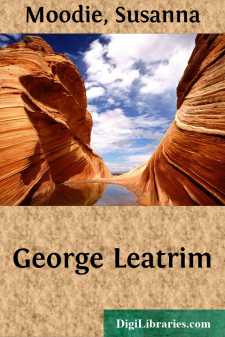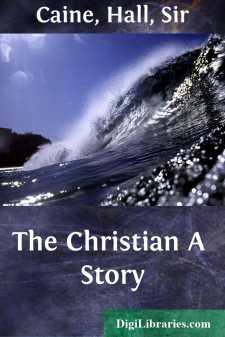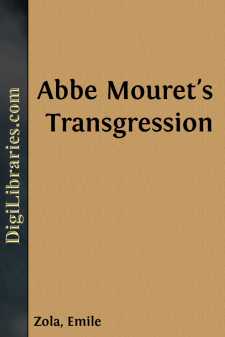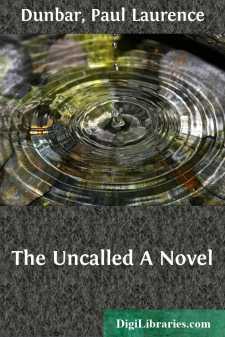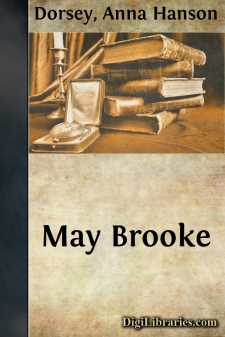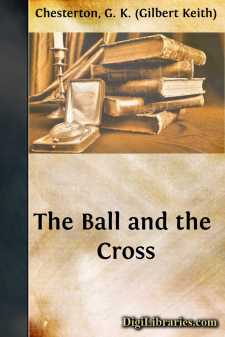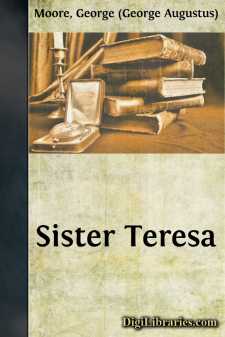Fiction
- Action & Adventure 180
- Biographical 15
- Christian 59
- Classics 6965
- Coming of Age 5
- Contemporary Women 3
- Erotica 8
- Espionage/Intrigue 12
- Fairy Tales, Folklore & Mythology 236
- Family Life 169
- Fantasy 117
- Gay 1
- General 596
- Ghost 32
- Historical 808
- Horror 43
- Humorous 160
- Jewish 25
- Legal 4
- Medical 22
- Mystery & Detective 315
- Political 49
- Psychological 41
- Religious
- Romance 159
- Sagas 11
- Science Fiction 730
- Sea Stories 113
- Short Stories (single author) 537
- Sports 10
- Suspense 1
- Technological 8
- Thrillers 2
- Urban Life 31
- Visionary & Metaphysical 1
- War & Military 173
- Westerns 199
Religious Books
Sort by:
by:
Susanna Moodie
CHAPTER I. 'One of the most terrible instances of dishonesty I ever knew,' said a lady friend to me, 'happened in my own family, or, I should say, in one of its relative branches. You were staying last summer at Westcliff; did you hear Dr. Leatrim preach?' 'Yes; my friends resided about a mile from the parsonage, and were constant in their attendance at his church. The Doctor...
more...
by:
Hall Caine
I. On the morning of the 9th of May, 18—, three persons important to this story stood among the passengers on the deck of the Isle of Man steamship Tynwald as she lay by the pier at Douglas getting up steam for the passage to Liverpool. One of these was an old clergyman of seventy, with a sweet, mellow, childlike face; another was a young man of thirty, also a clergyman; the third was a girl of...
more...
by:
Emile Zola
INTRODUCTION 'LA FAUTE DE L'ABBE MOURET' was, with respect to the date of publication, the fourth volume of M. Zola's 'Rougon-Macquart' series; but in the amended and final scheme of that great literary undertaking, it occupies the ninth place. It proceeds from the sixth volume of the series, 'The Conquest of Plassans;' which is followed by the two works that...
more...
by:
George Eliot
INTRODUCTION George Eliot, or Mary Ann Evans, was born at Arbury Farm, in the parish of Chilvers Coton, Warwickshire, on the 22nd of November, 1819. She was the fifth and last child of her father by his second wife—of that father whose sound sense and integrity she so keenly appreciated, and who was to a certain extent the original of her famous characters of Adam Bede and Caleb Garth. Both during...
more...
CHAPTER I It was about six o'clock of a winter's morning. In the eastern sky faint streaks of grey had come and were succeeded by flashes of red, crimson-cloaked heralds of the coming day. It had snowed the day before, but a warm wind had sprung up during the night, and the snow had partially melted, leaving the earth showing through in ugly patches of yellow clay and sooty mud. Half...
more...
CHAPTER I. UNCLE STILLINGHAST. "Do you think they will be here to-night, sir?" "Don't know, and don't care." "The road is very bad,"—after a pause, "that skirts the Hazel property." "Well, what then; what then, little May?" "The carriage might be overturned, sir; or, the horses might shy a little to the left, and go over the precipice into the...
more...
IA la sueur de ton visaigeTu gagnerois ta pauvre vie,Après long travail et usaige,Voicy lamortqui te convie. The quatrain in old French written below one of Holbein's pictures is profoundly sad in its simplicity. The engraving represents a ploughman driving his plough through a field. A vast expanse of country stretches away in the distance, with some poor cabins here and there; the sun is...
more...
by:
Marietta Holley
PREFACE. Josiah and me got to talkin' it over. He said it wuzn't right to think more of one child than you did of another. And I says, "That is so, Josiah." And he says, "Then, why did you say yesterday, that you loved sweet Cicely better than any of the rest of your thought-children? You said you loved 'em all, and was kinder sorry for the hull on 'em, but you loved her...
more...
I. A DISCUSSION SOMEWHAT IN THE AIR The flying ship of Professor Lucifer sang through the skies like a silver arrow; the bleak white steel of it, gleaming in the bleak blue emptiness of the evening. That it was far above the earth was no expression for it; to the two men in it, it seemed to be far above the stars. The professor had himself invented the flying machine, and had also invented nearly...
more...
SISTER TERESA As soon as Mother Philippa came into the parlour Evelyn guessed there must be serious trouble in the convent. "But what is the matter, Mother Philippa?" "Well, my dear, to tell you the truth, we have no money at all." "None at all! You must have some money." "As a matter of fact we have none, and Mother Prioress won't let us order anything from the...
more...


